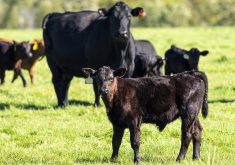Farmers with livestock should take some of the same precautions that they are taking with people in order to make sure they don’t transmit the coronavirus COVID-19 to their animals.
Prof. Scott Weese, who works in infectious diseases at the Ontario Veterinary College at the University of Guelph, says it’s not yet known which animals could be infected by the virus, if any.
As a result, he says stay out of barns and avoid animals if you develop a COVID-19 infection.
Read Also

Melancthon faces a new quarry fight over water, environment and farmland risks
A proposed Strada blast quarry in Melancthon, Ont., sparks regional debate over water protection, farmland sustainability, and Ontario’s aggregate policy.
Why it matters: Infecting a livestock herd, although unlikely, could result in losses for farmers and the transfer of the virus to another species.
“Pigs are the main concern,” said Weese in an interview with Farmtario, but until there’s more information anyone with the disease should be cautious around animals.
The genetic makeup of the virus and how it attached to cells could make it more likely to infect pigs compared to other animals, says Weese.
“If you are sick, stay away from everything, from people from animals. If you do go into the barn, do not go close to your pigs. I know it’s not easy for everyone.”
It’s important to communicate with employees about the risk to the animals and encourage them to not come to work if they are ill.
Weese says if it’s possible, keep employees who have been exposed to someone else with COVID-19 home too.
A lot of farmers can’t easily replace themselves, but they can take steps to reduce contact with animals, says Weese.
“The risk for animals is very low, the risk of transmission is very low, but if you can avoid exposing them to the virus, it would be better.”
Ontario Veterinary College professors Jan Sargeant and Annette O’Connor recently posted on Twitter that they don’t expect pets to be infected, after a literature search on the topic of COVID-19 and similar diseases.















